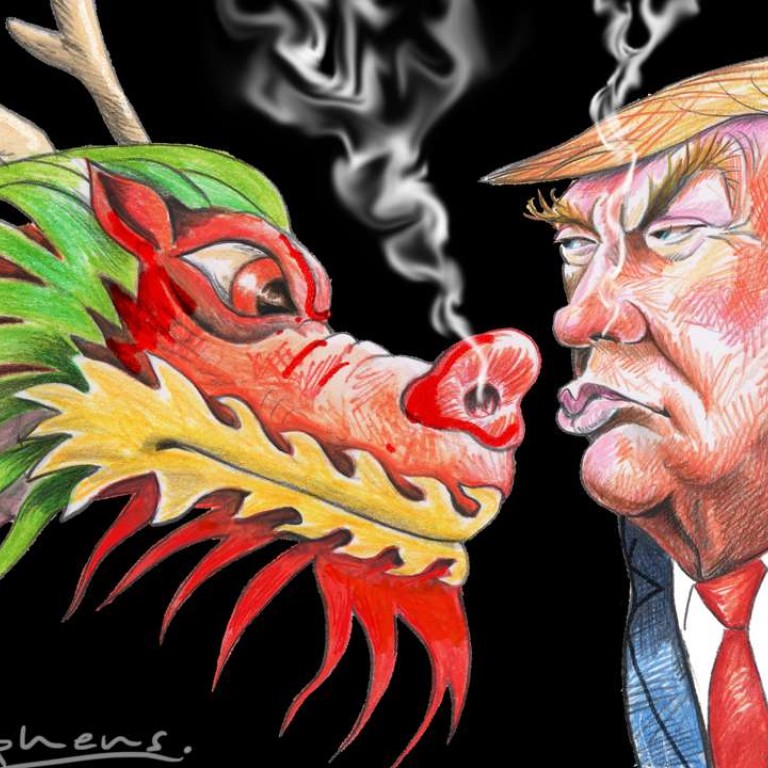
Growing concern that Trump’s anti-Beijing rhetoric will be the next topic to head his agenda
Tensions between the US and China could see consumers having to buy more food and commodities from Australia and Europe
As global shares plunged, those who had believed the new US president was only bluffing about introducing controversial proposals on immigration bans during his campaign are certainly taking him seriously now.
The two weeks of volatility since Donald Trump took office have fuelled anxiety that investments in China will be the next victims of his hostile, unpredictable policies, analysts say.
“It’s a fearful time right now,” said Shaun Rein, managing director of China Market Research Group. “When we talk to investors, they don’t know where to put their money.”
International investors have been given a blunt reminder that US presidential pledges can do real harm to the global market.
On January 25, strong growth sentiment sent the Dow Jones Industrial Average above the 20,000 milestone for the first time and triggered global rallies.
It’s a fearful time right now. When we talk to investors, they don’t know where to put their money
But two days later, after Trump signed an executive order banning immigration from seven Muslim-majority countries, protests were sparked across the nation, and beyond.
The result was US indexes suffered their largest loss this year on Monday, and the dollar weakened against all major currencies.
The new president has already withdrawn the US from the Trans-Pacific Partnership, a 12-nation free trade deal, and signed a directive to build a wall along the US-Mexico border to curb illegal immigration, and he’s still less than a fortnight in office.
For those with investments in China, all the above have reinforced concerns that Trump’s anti-Beijing rhetoric will be the next to hit the top of his agenda.

Trump has vowed to impose a 45 per cent tariff on Chinese imports and label Beijing a currency manipulator. His administration has also angered China by talking tough on Taiwan and the South China Sea disputes – tough stances Rein believes Trump will be maintained in his dealings with China.
“He likes to use chaos in order to negotiate,” he said. “My guess is he is going to take a strong stand and criticise China on trade, currency and its military.”
And many others share his concerns.
In a survey of global emerging market investors conducted by Nomura last week, 41 per cent of those polled expected the first policy implemented by Trump regarding China to be related to trade protectionism.
Thirty-two per cent said his first move would be increasing geopolitical pressure, while 26 per cent believed it to be labelling Beijing a currency manipulator.
The majority of respondents expecting punitive trade policies, believe Beijing to fight back, with 36 per cent suggesting the government was most likely to cut US imports, ranging from cotton to iPhones and Boeing aircraft.
Nomura predicted such a trade war could shave up to 0.3 per cent off China’s GDP growth rate this year.

Looking at the positives, however, Rein is advising his clients to invest in naval weapons companies, which might benefit from China bolstering its navy to tighten its grip on the South China Sea.
Food producers in Australia, New Zealand and Europe might also see surging demand from Chinese consumers if agricultural imports from the US were reduced, he adds.
“Chinese consumers are still spending a lot,” he said. “There is going to be more tension between America and China. Consumers will have to buy food and commodities from Australia and Europe.”
Meantime, tourism in Asian countries could gain from a sharp decline in Chinese travellers heading to the US, Rein said.
He [Trump] likes to use chaos in order to negotiate...My guess is he is going to take a strong stand and criticise China on trade, currency and its military
“Many will start to think it’s unsafe because they see all the protests,” he said, and worry they are going to be targeted by “ultra-white nationalists who do not like Asians”.
But the more optimistic commentators believe Trump would never let the US economy suffer from a deteriorating relationship between Beijing and Washington.
Brett McGonegal, chief executive of Capital Link International, expects Trump to adopt a “soft-play” approach when it comes to handling the US’ largest trading partner.
China’s infrastructure, healthcare and fast-growing internet technology sectors will continue to thrive, he adds, especially with the Communist Party eager to maintain growth momentum ahead of the 19th Party Congress this autumn.
“Trump has picked the topics that do not largely have economic drawbacks to try to flex his muscles,” McGonegal said. “I don’t think it translates into how he is going to handle China.”
“If you look at China growing 6.5 per cent and the US growing 2.5 to 3.5 per cent, those two things kind of hold up the whole world’s economy. There is no reason to fight over that.”

